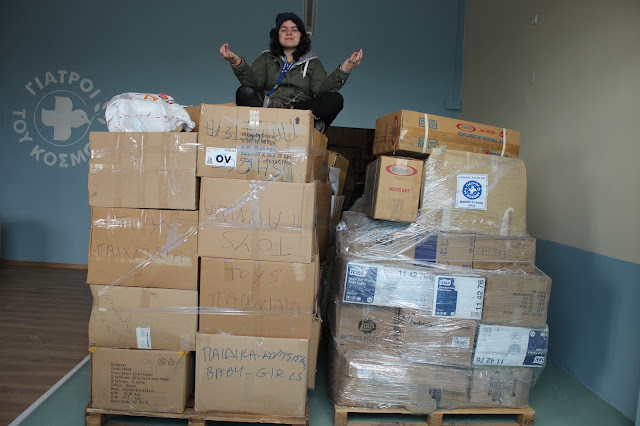And so here we go for part III.
It's so bloody hard to try and put into words what the last 40 days have been like.
If you recall, the first time I went to Greece to volunteer in Lesbos it was September. When I returned in December I was thoroughly burn out. I didn't leave my pijamas for 2 weeks, barely left bed, didn't see any friends or family. I eventually had to, when Christmas came, but the inner struggle was ripping me apart. As I said, it's hard to explain, but I think anyone that has gone through burn out understands the lethargy, the feeling of not being able to get up and get on with life.
When I was preparing to return home for the 2nd time after being in Greece for two months, I told myself I wouldn't let this happen again. I was burn out, yes, but I would fix it. I signed up for work shifts even before I left Lesbos. I made a point of asking to do breakfast shifts at the restaurant where I work, so I could get up early and (maybe) have a productive day. I was determined to not go back to the mental state I was in December. I signed up for counselling a few days after returning. This has proven one of the best decisions I've ever made. I was assigned to someone that has questioned me on why I don't dedicate time to my wellbeing and taught me how to do it. I've spent the last 40 days preparing for the next time I return to Greece, which is tomorrow.
I've read books, I've done online courses, me and Jack have spent many dozens of hours talking about how will we take better care of ourselves this time. You will probably be surprised to learn that our "preparation" goes from "how can we eat more healthy?" to "did I pack enough clothes to go out for a drink?". I would have probably twisted my nose if I heard this is how people prepare to go and work at a refugee camp. But... the thing is... If I don't take care of myself, how will I take care of others? In the last few months I've heard things I never thought I would hear. Specially those coming from children. Bombs, kidnapping, raping, ... these words weren't part of my day to day vocabulary until very recently. I'm still processing this mess.
Jessica starts by talking about her time in Rwanda but I swear that if you changed the name to Lesbos I would say she was telling my story. The struggles about fitting in or making friends with colleagues, the cynicism after a few weeks of working in the field, she even says she didn't leave her house for days on when the returned! It made me feel so much better about what I was going through, knowing that this is the same process to everyone. To know it's not just me questioning my motives for doing what I do, for getting upset with all the "you're so wonderful" messages because really, I feel like I do an unimportant job.
I rarely tell people what to do, but if you are considering a career in humanitarian work or thinking about volunteering (in Lesbos or somewhere else), please read this book. Humanitarian work is messy, it fails, it's hard to tell when it succeeds. But you need to know that before you start. I can't believe I knew so little when I first went to Lesbos.
I'll leave you with one of my favourite quotes from the book (although I have underlined half of it)
As you can see, I am ignoring thinking about what really is happening at Moria Refuge Camp. there's nothing I can do to help as I am home, so I am leaving the time to worry for when I'm there.
Here I go. Speak soon,
Sara















